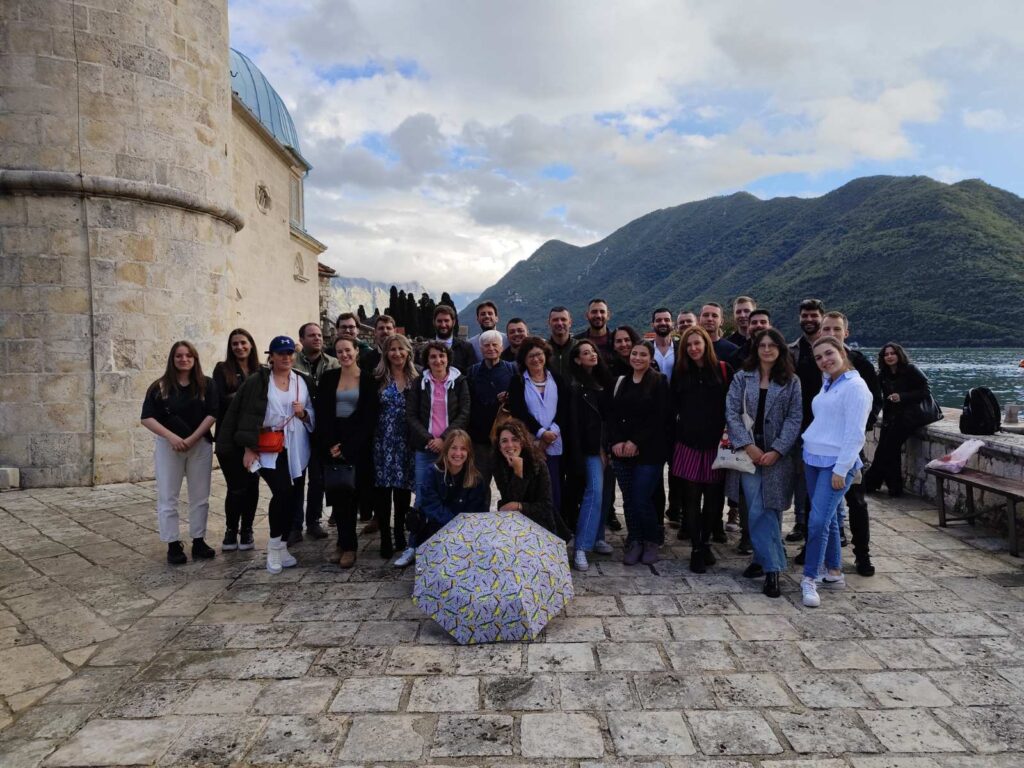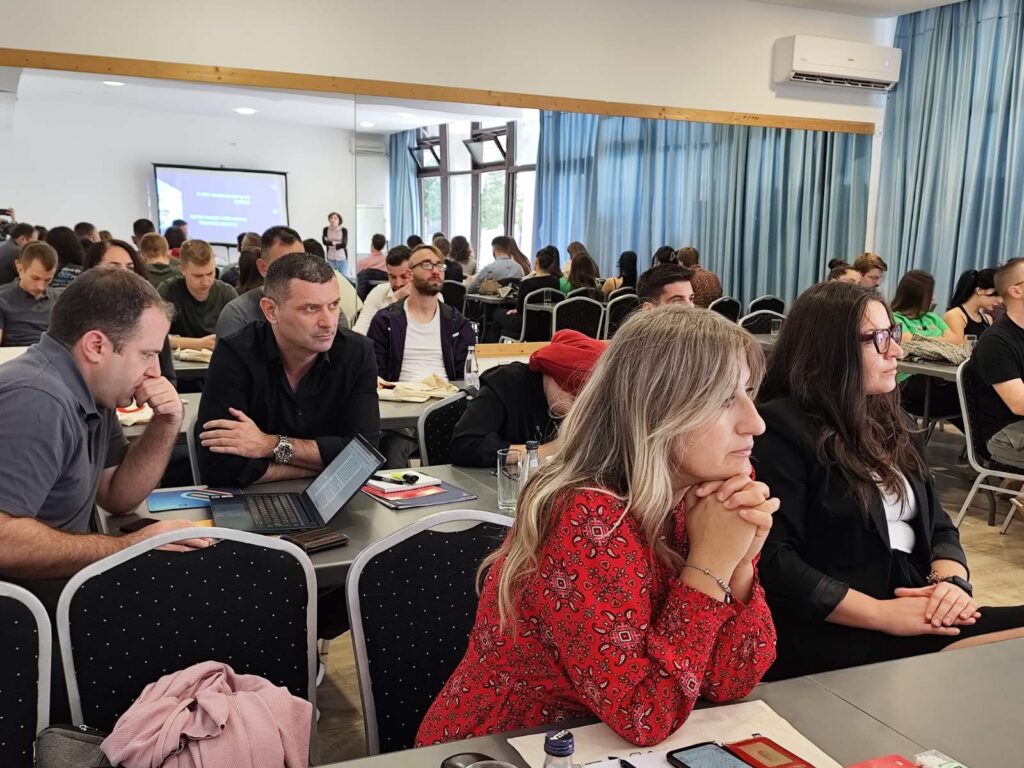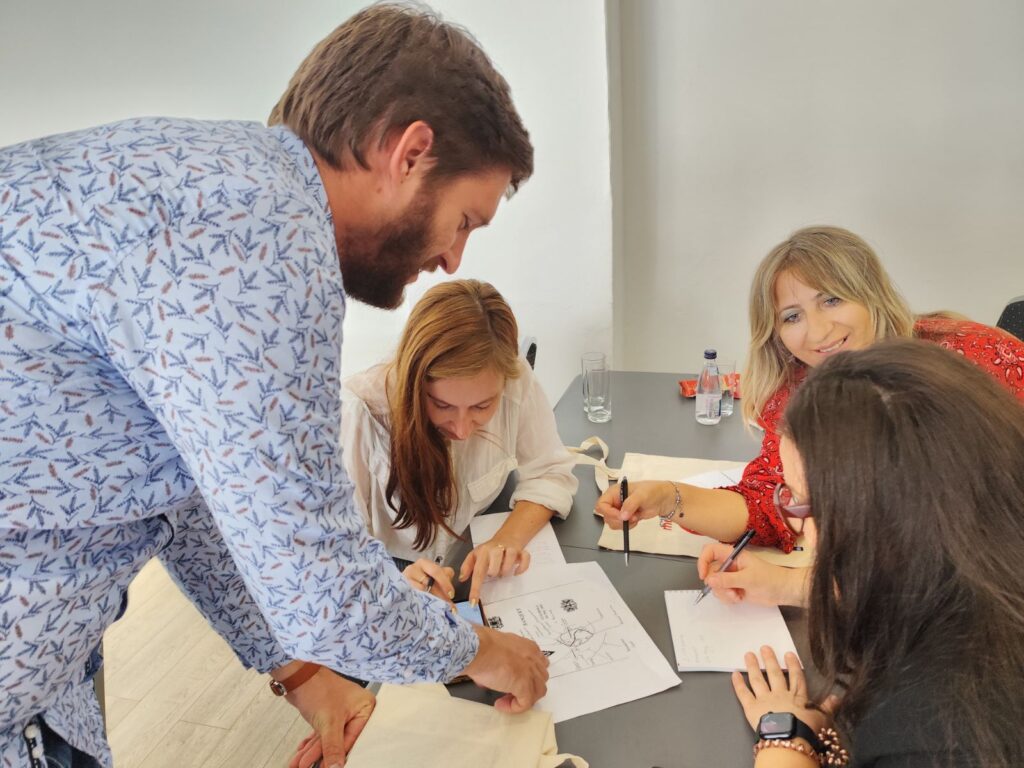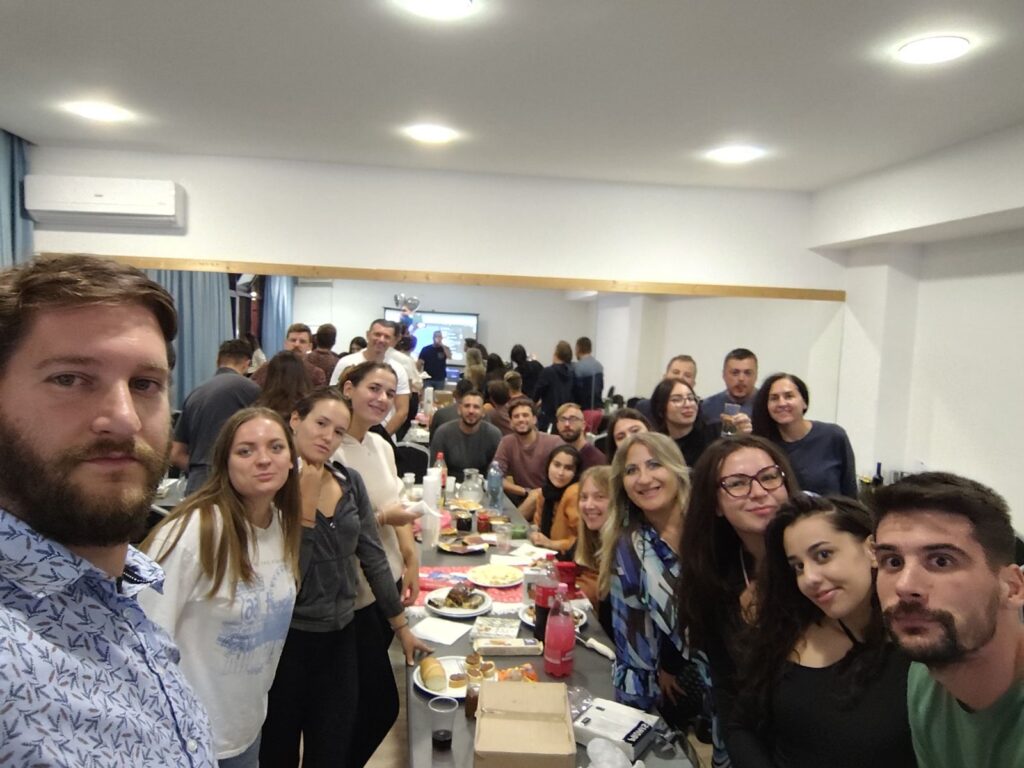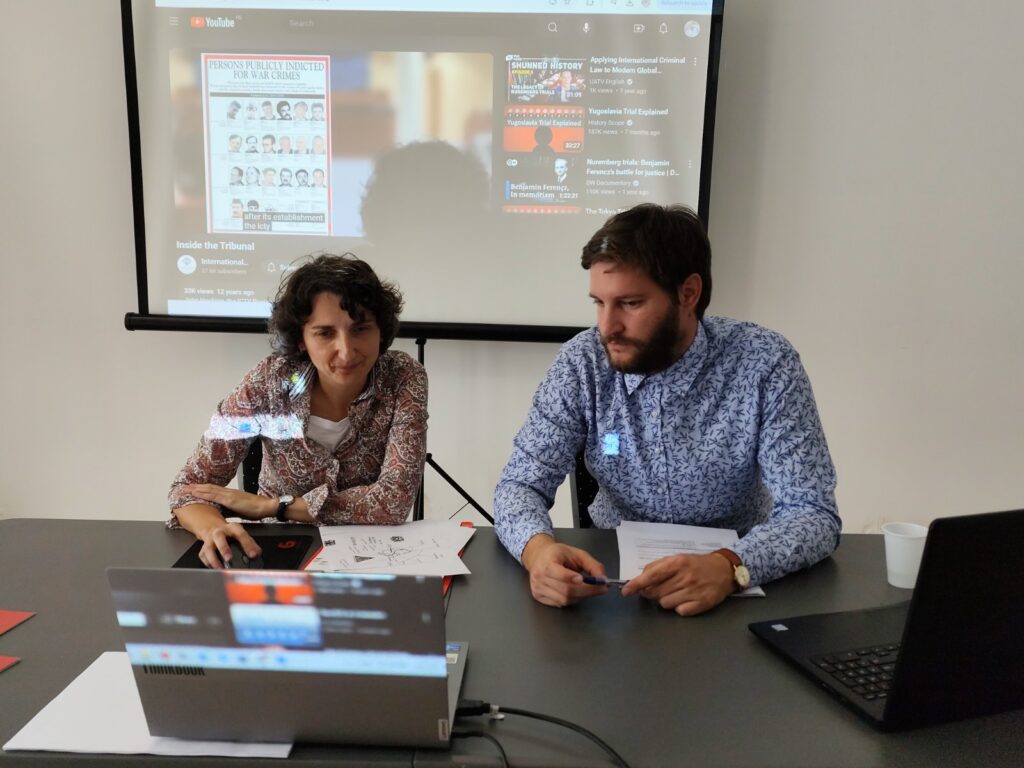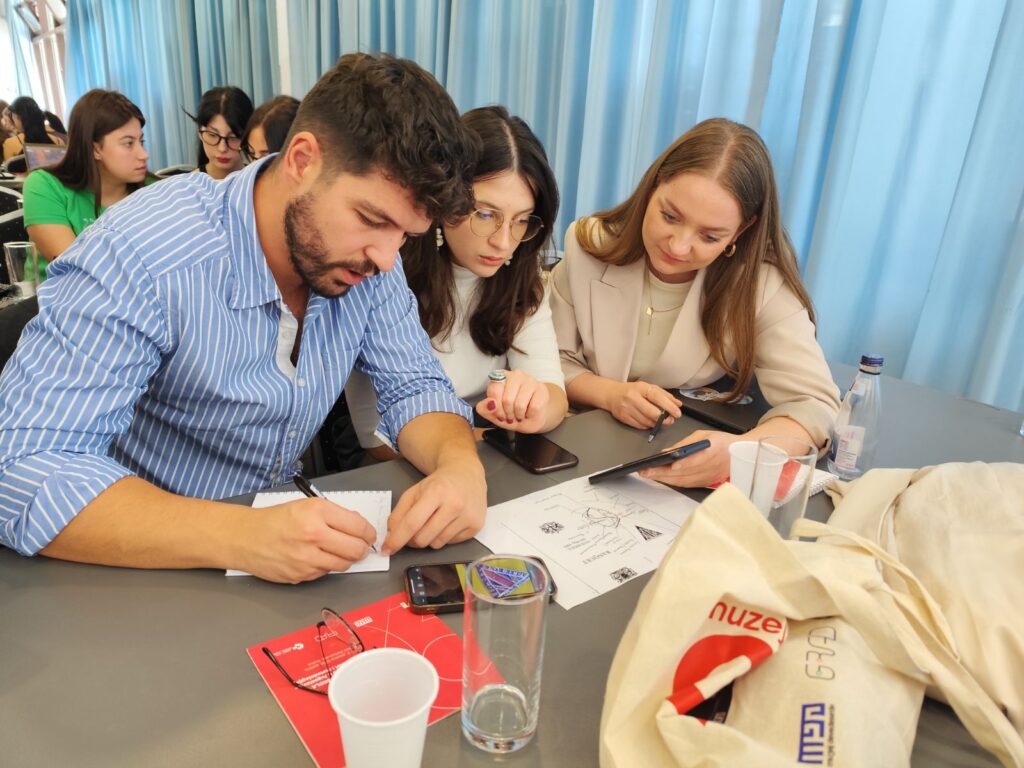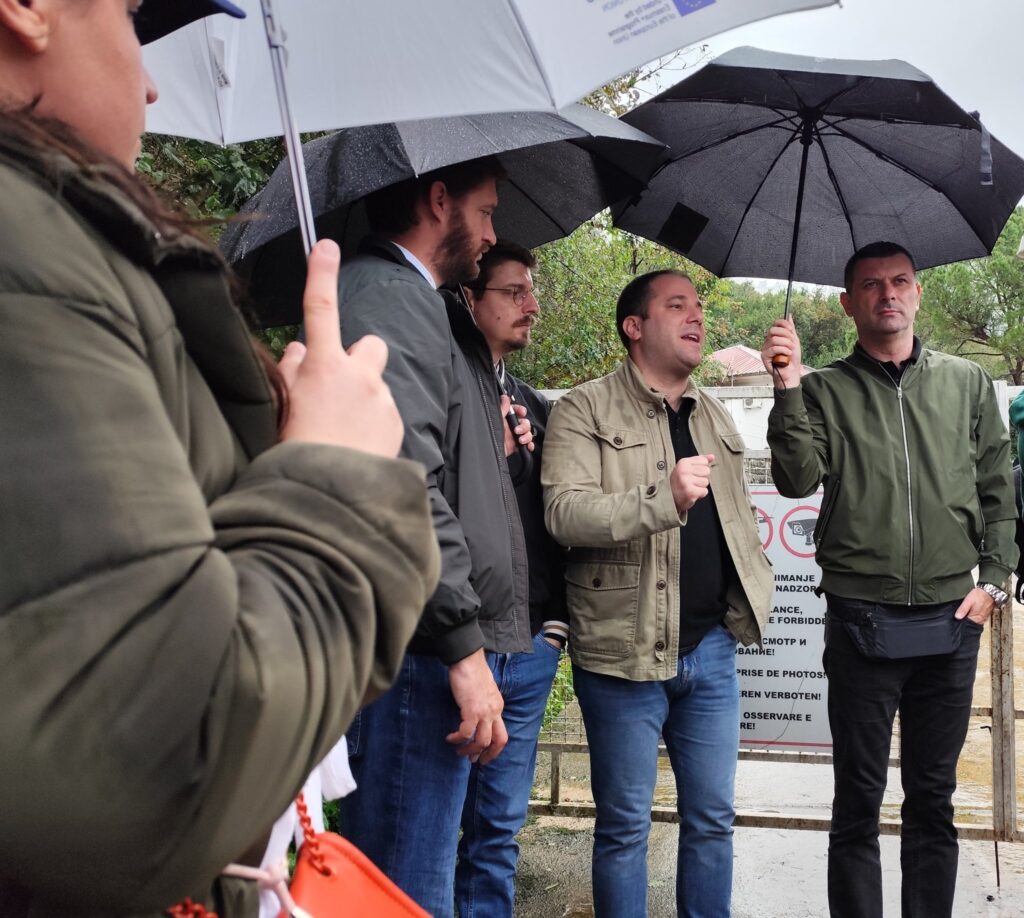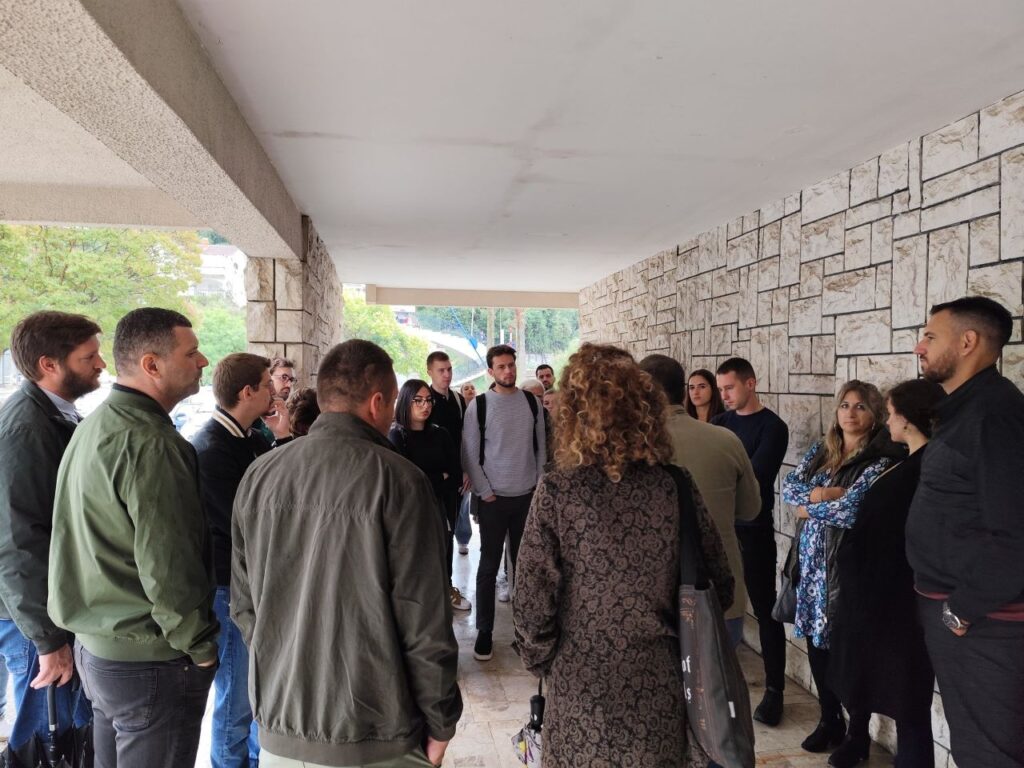“It is fundamentally important to study and critically review the wartime 1990s, because if these societies do not undergo a critical examination and study of the 1990s, if young people do not become familiar with all the horrors of that period, there is a real danger that some bad events will may repeat”, is one of the conclusions from the first regional school “The 1990s in Yugoslavia – New sources and methodologies”, held from 4 to 8 October 2024 in Budva.
During the school, participants from Serbia, Bosnia and Herzegovina, Croatia and Montenegro had the opportunity to learn about different approaches to studying the 1990s, as well as the application of contemporary methods for a better understanding of this time. They worked with historians Milivoj Bešlin, Senior Research Fellow at the Institute for Philosophy and Social Theory at the University of Belgrade; Adnan Prekić, Professor at the Faculty of Philosophy at the University of Montenegro; Dubravka Stojanović, Professor at the Faculty of Philosophy at the University of Belgrade; Filip Kuzman, Head of the Historical Museum of Montenegro; Ana Radaković, researcher at the Museum of the 1990s; as well as Sanja Radović. Teaching-workshop team also included director Andro Martinović, director of the Cultural Center Grad / Initiative Museum of the 1990s Dejan Ubović, as well as Miloš Vukanović, President of the Association of History Professors HIPMONT, Vukan Ražnatović, Head of the Museum of King Nikola in Cetinje, Maja Marinović and Damir Suljević from CCE.
As part of an intensive and interactive programme, various topics were explored, such as the impact of nationalist ideology on the war and the dissolution of Yugoslavia, the role of oral history in understanding the 1990s, the significance of the Hague Tribunal archives, and monument culture. They also reviewed the socio-political circumstances in Montenegro during the 1990s, and today’s youth perspectives on 1990s. The programme included film screenings followed by discussions, presentation of the exhibition “Labyrinth of the 1990s”, and participants had the chance to share their stories through setting of personal items from that period. In addition, the programme featured study visits to Herceg Novi and Morinj, as sites of crimes and remembrance, with lectures on confronting the past and prosecuting war crimes in Montenegro. Finally, educational and entertaining activities such as the ex-YU evening “Flavours of My Homeland” and a quiz on the 1990s provided a creative platform for reflection and participant engagement.
“The research conducted by the CCE shows that young people from the region know very little about the wars of the 1990s and that they learn the most from their parents and the least at school. This is not only disappointing, but also dangerous. That is why these schools are essential, as for many, it is their first exposure to important events, and they can exchange perspectives from different sides of the conflicts to gain a more comprehensive picture about which they can think critically and compare different experiences. There is no reconciliation until you understand the views of the other side“, said Dubravka Stojanović, historian and one of the lecturers at the school.
“Everything happening around us indicates that Montenegro, as a political community, has never confronted the legacy of the 1990s, making this topic highly relevant today. The problem lies in the attempt to relativize that period and the avoidance of critically reflecting on Montenegro’s role in these processes. Young people know little about it, and the education system does not help, while a narrative that often causes confusion is promoted in the public sphere. That is why schools like this are valuable, as they help young people better understand the legacy of the 1990s and how those events have shaped the time we live in,” commented Adnan Prekić, one of the lecturers.
“Wars, violence, crimes, genocide, plunder, persecution, and ethnic cleansing not only marked the hellish 1990s in Southeast Europe. They continue to mark us today, as the consequences of hatred, crimes, persecution, and wars remain in people’s minds and hearts for a long time. And not only that, if we look at many societies in the region, particularly Serbia, the war actors and creators of the 1990s have returned to power,” emphasized Milivoj Bešlin, noting that this represents both a personal and ideological continuity. “The so-called ‘Serbian World’ of Aleksandar Vučić today has the same goals as the so-called ‘Greater Serbia’ of Slobodan Milošević in the 1990s. This is why the study and critical reassessment of the war-torn 1990s is crucial. If these societies do not subject the 1990s to critical scrutiny and study, if young people are not educated of all the horrors of this period, there is a real danger that some things will repeat. That is why a school like this one is so important, but also insufficient. The 1990s have repeated themselves in the region, especially in Serbia, because neither the political nor the intellectual elite was willing to acquaint young people with the causes, consequences, and tragic essence of the 1990s,” he concluded.
“The post-Yugoslav space is still politically and culturally fragmented, defined exclusively within the framework of national communities. This makes it difficult for the new generations to get to know and connect with peers from the region and to understand the common ties within the area that suffered harshly in the wars of the 1990s. Schools like this one provide an opportunity to gather young people from different countries of the region, but also create conditions for new knowledge, understanding of complex reality from multiple perspectives, and enable familiarization with different sources and work methodologies in the analysis of history and social reality,” said the historian and one of the lecturers Sanja Radović.
Vukan Ražnatović emphasized the dual role that monuments can play through their contribution to education, raising awareness and preserving memory, but also as an instrument of manipulation. “How we, as a society, approach the memory of victims, both civilian and military, is reflected in the monuments we have erected in their honour. According to CCE’s research, young people know little about the events of the 1990s, and almost nothing about the monuments that serve to teach and remind of those events. Through the regional school, we also analyzed their importance and tried to look critically at how we perceive them and what messages we send to future generations”, said Ražnatović.
Participants also shared their impressions of the school.
“I am a student of political science and I applied to the regional school to deepen my knowledge about the events in the territory of the former Yugoslavia in the 1990s. In addition, I got the beginnings of new friendships. Although in the public space we mostly talk about what separated us, such programs point to similarities that we still share today and that should be the foundation on which reconciliation will be built,” said Lea Fabić, a participant from Croatia.
“I applied to the regional school on the 1990s to gain new experience in analyzing sources and getting to know the archives of the Hague Tribunal, but also because of the lecturers, primarily Dubravka Stojanović, Milivoj Bešlin and Adnan Prekić. The school fulfilled my expectations and provided me with new knowledge about the 90s, and the organization was excellent. An experience to remember!”, said Milo Ražnatović, a student at the Faculty of Philosophy of the University of Montenegro.
That the differences presented to us are remediable, is the conclusion of Ilvana Dejo, a participant from Bosnia and Herzegovina. “We put emphasis on confronting the past and the necessity of prosecuting all perpetrators of genocide and other war crimes. There needs to be zero tolerance for that, as well as for inciting hatred towards other ethnic groups. I would emphasize the message of the historian Vukanović that our common goal should be to reach a consensus, not a compromise when it comes to things like this. Special thanks to CCE for the organization, but also to all participants for their cooperation”, said Dejo.
The School of The 1990s in Yugoslavia – New sources and methodologies was successfully completed by 25 participants: Milo Ražnatović, Biljana Bulajić, Nizama Bronja, Ilvana Vejo, Jovana Simić, Sara Danaj, Andrea Eraković, Domagoj Zubović, Lea Fabić, Emil Hodžić, Jovan Milosavljević, Jelena Pavlović, Davud Delimeđac, Karlo Mak, Miloš Maraš, Melina Mikić Božanić, Aleksa Gačić, Sofija Jovanović, Dušan Medin, Dušan Trifunović, Marija Milošević, Isidora Janković, Ivana Matanović, Ervin Erović and Ljiljana Milović.
The Regional School The 1990s in Yugoslavia – New Sources and Methodologies is part of the project “Museum of the 1990s – Regional Centre for Reconciliation, Education, and Future Cooperation,” implemented by the Centre for Civic Education (CCE) from Montenegro and Association of Citizens Cultural Front from Serbia, with support from the Dutch Ministry of Foreign Affairs, through the MATRA program.
Maja Marinović, Programme Associate

